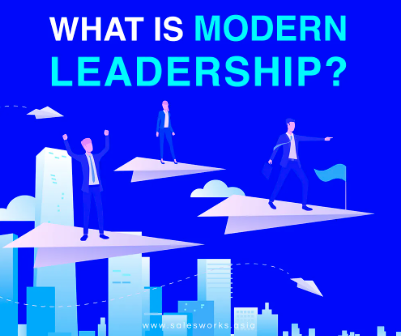With rapid changes in technology, evolving employee expectations, and the rise of remote work, these shifts have created new challenges. If your leadership isn’t adapting, it could be the roadblock stopping your business from thriving.
Here’s how to identify gaps in your leadership and implement modern leadership strategies for business growth.
Why Traditional Leadership Doesn’t Work Anymore
Top-down leadership—where leaders make decisions and employees follow orders—doesn’t fit in today’s workplace. Employees now expect more autonomy, engagement, and purpose in their roles.
- Micromanagement Demotivates: Controlling every detail wastes time and stifles innovation. Employees feel demoralized and less likely to contribute fresh ideas.
- Communication Has Changed: Sticking to old methods of communication risks missing out on crucial insights. Use the tools and platforms your employees prefer.
- Purpose Over Productivity: Today’s workforce values purpose and meaning over just outputs and profits. If you’re focused solely on productivity metrics, you may miss the bigger picture.
Key Insight: Leading like it’s 2010 won’t cut it anymore. To keep talent engaged and spark innovation, you need to implement modern leadership strategies for business growth that adapt to today’s dynamic environment.
Recognizing When Leadership Is the Problem
Business owners often push for results and believe they know the best way to get things done. But when leaders dictate every move, they risk limiting their team’s potential.
- High Turnover: If employees are leaving after a year or two, it’s more than the market—there’s likely a leadership or cultural problem driving them away.
- Burnout in Top Performers: High performers burning out often signals they’re overwhelmed or unsupported, causing them to lose motivation.
- Lack of Innovation: When no one on your team is offering new ideas, it’s often a sign they feel their contributions aren’t valued.
Creating an environment that supports leadership growth and team ownership can unlock untapped potential within your organization. Leadership development plays a key role in this shift, fostering a culture of innovation and engagement.
Action Step: Stop solving every problem yourself. Build an environment where your team takes ownership, makes decisions, and drives innovation. Empowerment is crucial to developing modern leadership strategies for business growth.
Leading in a Remote or Hybrid World
Remote work has exposed a major flaw in traditional leadership: the inability to trust teams you can’t physically see. In a distributed workforce, micromanaging becomes counterproductive.
- Set Clear Expectations: Ambiguity causes confusion. Make sure your team knows what success looks like by setting clear goals and outcomes from the start.
- Focus on Output, Not Hours: Measure results, not the number of hours spent online. Trust your team to manage their time effectively.
- Use Modern Tools: Relying on long emails or unnecessary meetings won’t cut it. Platforms like Slack, Asana, and Zoom are better for managing remote teams.
- Build Trust: Trust is essential. Constant check-ins send a message of doubt. Instead, support your team strategically and build regular touchpoints for alignment.
Key Insight: In a remote world, trust and communication matter more than ever. Adapting your leadership to meet the needs of today’s work environment is essential for modern leadership strategies for business growth.
From Boss to Coach
Leadership today isn’t about giving orders—it’s about helping your team grow. Employees want mentorship, guidance, and the opportunity to develop their skills.
“We are moving from an era of individual leaders to an era of networked leadership teams that steer the organization. The old hierarchical model of leadership is increasingly seen as an obstacle to meeting the complex demands facing today’s organizations.”
— Aaron De Smet, Arne Gast, Johanne Lavoie, and Michael Lurie, New Leadership for a New Era of Thriving Organizations
- Ask More Questions: Engage your team by asking for their ideas and input instead of dictating solutions. It encourages critical thinking and investment in their work.
- Provide Ongoing Feedback: Don’t wait for quarterly reviews. Give feedback regularly and ask your team for input on your own leadership.
- Celebrate Wins: Recognition drives motivation. Celebrate both small and large achievements to keep your team engaged and morale high.
Action Step: Shift from being the person with all the answers to becoming a coach who empowers your team to solve problems themselves. This shift is a cornerstone of modern leadership strategies for business growth.
The Importance of Emotional Intelligence
Overlooking the emotional side of leadership is a critical mistake. Employees today want to feel valued and supported, not just as workers, but as individuals.
- Listen Actively: Listen to understand, not just to respond. Regular one-on-one check-ins can help you uncover issues before they escalate.
- Show Empathy: Recognize that employees have personal lives that impact their work. Be flexible and compassionate when necessary.
- Control Your Emotions: Your team looks to you for cues. If you’re constantly stressed, your team will feel it. Regulate your emotions and create a calm, productive atmosphere.
Key Insight: A leader who is emotionally intelligent and responsive to their team’s needs will see increased loyalty and productivity. This trait is essential for modern leadership strategies that drive business growth.
